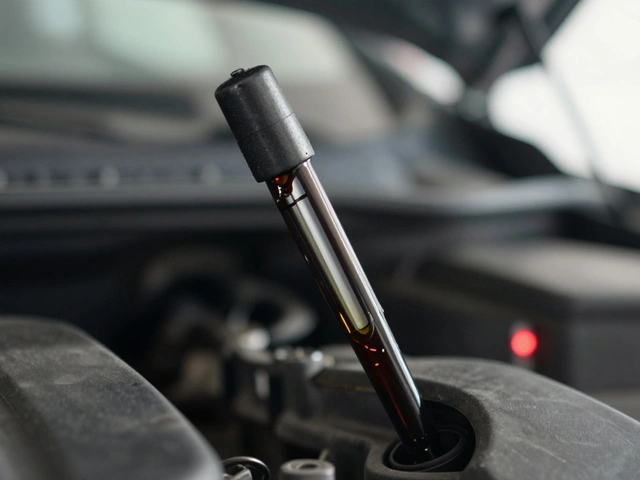So, you're trying to figure out if swapping out those old spark plugs can actually make your car idle smoother. The short answer? Absolutely. But let's break it down a bit.
First off, spark plugs are small but vital. They ignite the air/fuel mixture in your engine's cylinders, powering the car. If they're worn out or dirty, they struggle to spark efficiently, messing with your engine's performance, especially at idle. You might feel the car shudder or notice fluctuating RPMs when at a standstill.
Changing them isn't just about fixing the idle; it's about the overall health of your engine. Fresh plugs ensure consistent firing, leading to better fuel economy, reduced emissions, and a more reliable ride. Keep reading to explore how you can tell it's time for new plugs and how they can give your ride a smoother, more stable idle.
- The Role of Spark Plugs
- Signs Your Spark Plugs Need Changing
- How New Spark Plugs Affect Idle
- Tips for Maintaining Spark Plugs
The Role of Spark Plugs
The humble spark plugs may not get the spotlight often, but they play a crucial role in your vehicle's engine. Think of them as tiny lightning bolts that zap into action every time you start your car. By creating a spark, they ignite the air/fuel mixture in your engine’s cylinders, setting off a controlled explosion that generates power to move your car.
Basic Function and Importance
Without a functioning spark plug in each cylinder, that mixture doesn’t ignite, and your car won’t run as it should. A misfire can lead to shaking and reduced performance—which can really show when your car is idling. If you're seeing dashboard warning lights or think the fuel economy is dipping, spark plugs are a good place to start when troubleshooting.
Construction and Lifespan
Spark plugs have a lifespan generally ranging from 30,000 to 100,000 miles, depending on their type. Modern ones are mostly made of platinum or iridium, which last longer and perform better than older copper models. If you're aiming for longevity and performance, investing in higher-grade spark plugs pays off.
| Type | Lifespan (Miles) |
|---|---|
| Copper | 20,000-30,000 |
| Platinum | 50,000-60,000 |
| Iridium | 70,000-100,000 |
Why It Matters for Idle
Ever notice how smooth your ride used to feel at a stoplight? Over time, grimy or worn-out spark plugs can become the cause of rough idles, as they cannot effectively ignite the fuel mixture. Regularly checking and replacing them ensures your engine operates smoothly, preventing those unexpected shakes and bumps when the vehicle is idling.
In short, those small but mighty components are key to a well-running engine. Keeping them in good shape means more than just a smooth idle; it’s about maintaining the heart of your engine for peak performance.
Signs Your Spark Plugs Need Changing
How do you know when your spark plugs need some attention? Catching the signs early can save you from bigger headaches down the road. Let's check out what to look for.
1. Engine Misfires
One big tip-off is if your engine is coughing or sputtering—yeah, it's basically misfiring. A faulty spark plug can’t ignite the fuel mix properly, which can disrupt the combustion cycle. This usually happens when you're starting the engine or when it's under stress.
2. Poor Fuel Economy
Notice you're visiting the gas station way more than usual? Worn spark plugs are often the culprit. Since they can’t ignite the air/fuel mixture efficiently, your engine works harder and burns more fuel. Fresh plugs can boost your vehicle performance and help you save at the pump.
3. Hard Starts
A lot of things can cause hard starts, but bad spark plugs are a usual suspect. If you're playing games with the ignition and the car just doesn't want to start, think about checking those plugs.
4. Rough Idling
If the car feels like it's vibrating while idle, it might be time for new plugs. When they’re not firing right, it messes with your engine idle. It's like the car is giving you a little nudge saying, 'Help!'
5. Engine Knock or Ping
That unsettling knock or ping noise? Damaged or worn plugs can be to blame. They cause an uneven burn, leading to early combustion known as 'knocking.' It’s not just annoying; it can damage the engine over time.
Keep in mind that regular check-ups and a bit of maintenance can prevent these issues before they start. So, if you're spotting any of these signs, it might be time to get those spark plugs replaced.

How New Spark Plugs Affect Idle
When you pop in new spark plugs, you're giving your engine a fresh chance at firing on all cylinders, quite literally. Let's dive into how exactly this impacts your car's idle.
Smoother Combustion
At its core, an engine relies on precise combustion. When your plugs are ticking like a Swiss watch, it means the air/fuel mixture in the engine cylinders ignites efficiently. Old, worn-out plugs can't perform this task well, which messes up the idle. When you replace them, you're gifting your engine a smoother idle and improved overall performance.
Stable RPM
Another thing you'll notice with fresh spark plugs is the stability of the RPMs when your engine is at idle. A steady RPM means your car isn't stumbling or rough idling at stops. This steadiness keeps the engine running smoothly, minimizing the annoying vibrations and ensuring a quieter experience inside the cabin.
Fuel Economy and Emissions
With new sparks, expect a boost in fuel economy. How does this relate to idle? Well, efficient firing means less wasted fuel, and even at rest, your vehicle is consuming less gas than with those old plugs. This efficiency reduces emissions as well, making them quite the environment-friendly upgrade.
| Benefit | Impact |
|---|---|
| Fuel Efficiency | Up to 30% improvement |
| Emission Reduction | Significantly reduced |
So, not only do new spark plugs fix the idle, but they also bring a host of other benefits that keeps your ride running at its best. Next time your car's idle feels off, it might just need these small but mighty upgrades.
Tips for Maintaining Spark Plugs
Keeping your spark plugs in top shape doesn’t have to be a daunting task. With a little attention and regular checks, you can extend their life and keep your engine purring smoothly. Here are some easy tips to help you out.
Regular Inspections
First, make it a habit to inspect your plugs during regular maintenance. Look for signs of wear like carbon deposits, which are black soot on the electrode, or oil residue that could signal bigger engine problems. Catching these early can save you a headache down the road.
Keep Them Clean
Cleaning your spark plugs can improve their efficiency. Use a wire brush or a spark plug cleaner to gently scrub away any buildup. Just make sure they’ve cooled down first to avoid burns.
Check the Gap
The gap between the electrodes should be precise. Too wide, and the spark may be weak, too narrow, and it might not fire properly. A spark plug gap tool is a small investment that ensures your plugs are perfectly gapped for optimal performance.
Stay on Schedule
Consult your car’s manual for recommendations on how often to replace spark plugs. Generally, conventional plugs last about 30,000 miles, while iridium or platinum plugs can go for over 60,000 miles. Staying on schedule keeps your car’s engine idle smooth and efficient.
| Mileage | Type of Spark Plug |
|---|---|
| Up to 30,000 | Conventional |
| Up to 60,000+ | Iridium/Platinum |
Don’t Forget the Wires
A lot of folks overlook the spark plug wires. Over time, they can wear out, leading to engine misfires. Check them for cracks or breaks and replace them as needed to make sure your vehicle performance stays optimal.
By sticking these tips in your car care routine, you’ll not only keep your engine idle smooth but also improve overall car longevity. Not too shabby for such a small component, right?


